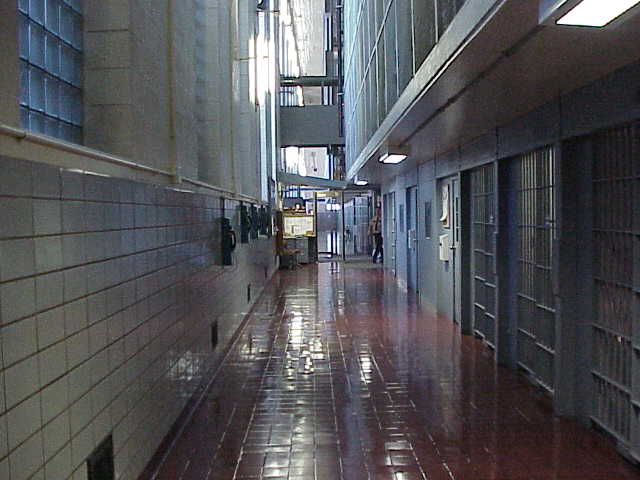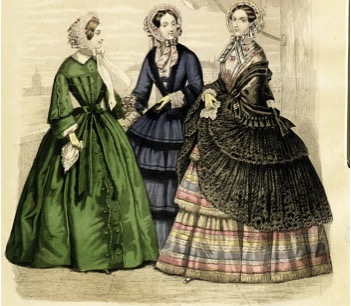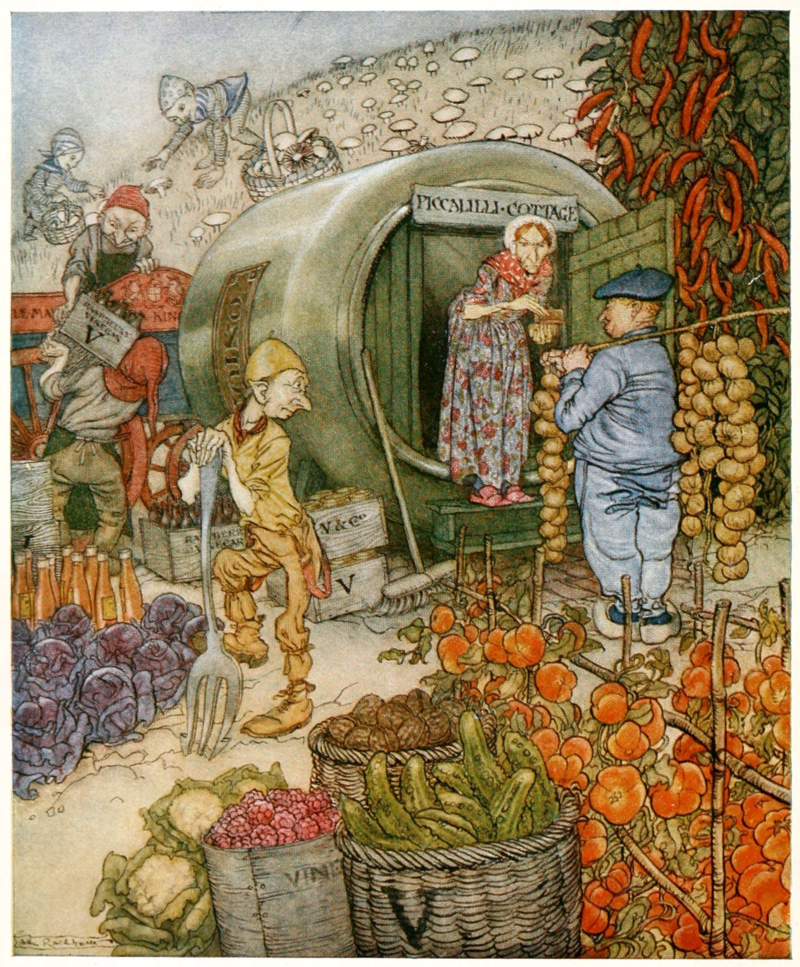 I spent last weekend at the pen, doing another Alternatives to Violence Project (AVP) workshop. This time we were training inside facilitators, which we do every two years or so. These are inmates who have done basic and advanced workshops, and have shown themselves to be really good at walking the walk as well as talking the talk. These are guys who have gone a long time without being written up or put in the SHU, who know how to and do defuse situations on the ground, and want to be a part of spreading the word to others. Without them, we couldn't do AVP. (NOTE: Check us out on Facebook!) We outside facilitators need their help in all sorts of ways, and I can't say enough good stuff about them or give enough thanks for their help.
I spent last weekend at the pen, doing another Alternatives to Violence Project (AVP) workshop. This time we were training inside facilitators, which we do every two years or so. These are inmates who have done basic and advanced workshops, and have shown themselves to be really good at walking the walk as well as talking the talk. These are guys who have gone a long time without being written up or put in the SHU, who know how to and do defuse situations on the ground, and want to be a part of spreading the word to others. Without them, we couldn't do AVP. (NOTE: Check us out on Facebook!) We outside facilitators need their help in all sorts of ways, and I can't say enough good stuff about them or give enough thanks for their help.Meanwhile, I'm so glad I'm not in prison. It's one of the things for which I am truly thankful. And I don't take it for granted. There's a long, long, long list of things which will send you to prison and I know very few people who have done none of them. And it can happen so fast... I've seen guys in the pen who are absolutely shell-shocked because suddenly they are there, and they almost don't know what's happened. (Some, who are mentally disabled, really don't know what's happened.)
 Meanwhile, this meme - the one on the right - has been going around the internet for a long, long time, comparing prison (favorably) to nursing homes. And I've refuted it every time I see it, and will continue to do so. One version of it starts "Let's put Grandma in prison", to which I always respond, you must really hate your Grandma. And then I explain why this meme is absolutely, one hundred percent false. Not to mention pretty damn hateful...
Meanwhile, this meme - the one on the right - has been going around the internet for a long, long time, comparing prison (favorably) to nursing homes. And I've refuted it every time I see it, and will continue to do so. One version of it starts "Let's put Grandma in prison", to which I always respond, you must really hate your Grandma. And then I explain why this meme is absolutely, one hundred percent false. Not to mention pretty damn hateful...So, let's compare apples to oranges, prisons to nursing homes:
Yes, prisoners get a shower every day - it's to prevent lice, mites, and scabies. It's a health measure, not for their pleasure. Believe me, a lot of prisoners would just as soon not take showers, because they don't want to be in a large group of naked men, some of whom are hostile, and - what with steam, slippery tile, soap, etc. - it's a place where rape and other assaults can happen. Is this really the way you want Grandma to live?
(NOTE: In a nursing home, they do get a bath or shower every day, but in private.)
| Prison cell |
(NOTE: The average nursing home room is at least six times that size, and the toilet is in a private bathroom with a door. And no, the lights are NOT turned off in a nursing home at 7:00 PM.)
Yes, there are three meals a day. They're awful. I know, I've eaten a lot of them. (We don't go out for meals during a weekend workshop.) They get no fresh fruit, vegetables, fish, or red meat. (The exceptions: once a day they get canned corn or canned green beans or lettuce or raw carrots.) There are a lot of carbs, which is why, even if you don't have diabetes before you go into the pen, there's a good chance you'll develop it before you go. (Nationally, 21% of inmates have diabetes.) Is this really the way you want Grandma to live?
(NOTE: I've eaten many a meal in assisted living centers, while visiting my parents, God rest their souls, and they weren't cold, except the salads, and they were pretty good.)
Yes, prisoners are allowed to have a TV - if they can afford it. (No, they're not free.) This is also a security measure, believe it or not. Unless they have a job (and as many as half the prisoners don't), they're locked down, in their 6x8 cell 23/24. Lately, they're also being given tablets (provided for free by private corporations, and not on the taxpayers' dime), which allow them to make telephone calls from their cells (using earbuds), listen to music, and access the digital law library.
(NOTE: The digital law library has caused some prisons to quit having a paralegal on staff to explain the law to the inmates, which is sort of like providing a medical library and firing the doctors.) Working or not, inmates are only allowed 1 hour for recreation (rec). Depending on staffing levels, or climate, even rec is cancelled. Inside rec is in the gym, which does come equipped with basketball hoops and weight equipment. (Personally, I want them to burn off their energy somewhere....)
 |
| Prison tiers, SDSP |
Now let's talk about medication. Most prisoners are now given Vitamin B and D supplements, because of the lack of sunlight, the food, and the constant fluorescent lighting. Yes, there's generally a paramedic and a nurse on duty 24/7 at a prison. Yes, there is free prescription medication, and if you really want people with bi-polar, schizophrenia, and other mental illnesses to go without medication in an over-crowded environment of people who are stuck there for years for criminal behavior, well... that one's beyond me...
But notice I said prescribed medication. You have to get that prescription, and getting it can take a while. First you have to get an appointment to see the doctor, which takes a while. Diagnosis takes a while. And the medications are given out on the prison time schedule, not the prisoners. Diabetics don't get to check their blood sugar and medicate accordingly. They get their insulin at the scheduled time. Period. Inmates on chemo get to ride out the side effects in their 6x8 cell, without any special diet or help. Is this really the way you want Grandma to live?
 A lot of prisoners are elderly. You get 20, 30, 40, 50 years or life, you're going to grow old in prison. Eventually, elderly and disabled prisoners are allowed knee braces, walkers, and eventually even wheelchairs. Those who are in wheelchairs are often assigned a pusher, which in this case is an inmate who will push them to where they want to go. But they're not given any special help in and out of bed, on and off the toilet, up and down the stairs, to and from the chow hall, the medication line, etc., until they're actually at the hospice stage. Is this really the way you want Grandma to live?
A lot of prisoners are elderly. You get 20, 30, 40, 50 years or life, you're going to grow old in prison. Eventually, elderly and disabled prisoners are allowed knee braces, walkers, and eventually even wheelchairs. Those who are in wheelchairs are often assigned a pusher, which in this case is an inmate who will push them to where they want to go. But they're not given any special help in and out of bed, on and off the toilet, up and down the stairs, to and from the chow hall, the medication line, etc., until they're actually at the hospice stage. Is this really the way you want Grandma to live?All I can say, is that if your elderly loved ones are in a nursing home that does what the meme says, you have put them in the wrong nursing home. (That or you really do hate them.) Get them out. Immediately. Here are the official Nursing Home Care Standards: find some place that follows them!
Meanwhile, I hope that reading this has made us all truly thankful for the things we have: a home, with a private bathroom, a soft bed with comforters and pillows, weather-appropriate clothing, the ability to go outside whenever we want, do what we want, eat whatever we want. The simple fact that I can actually turn the lights on and off is wonderful. The fact that I can have a Thanksgiving Dinner with friends, loaded with good food... it's fantastic. I am truly, truly, truly, thankful.









